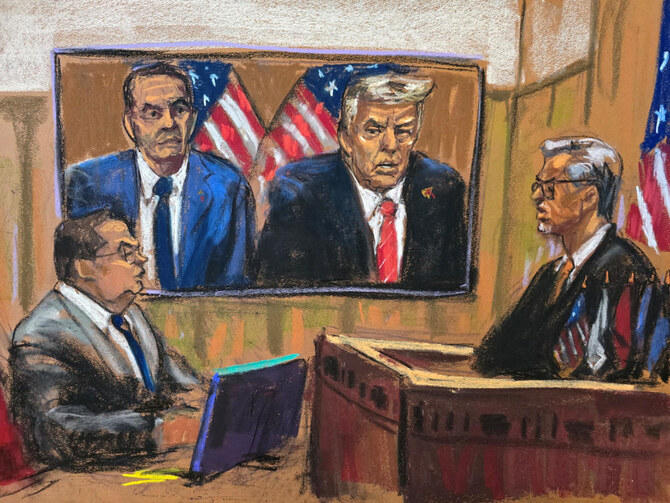CHICAGO: Discussions to ensure a “responsible transition” in Syria to prevent a rise in terrorism, provide basic services to citizens and ensure good relations with regional nations are progressing, the US acting undersecretary for political affairs told a press briefing attended by Arab News on Friday.
Concluding two days of talks with Turkish officials in Ankara, John Bass said the Syria Working Group also addressed defining Syria’s borders and “strengthening internal security” to prevent a resurgence of Daesh and other “foreign terrorist organizations” in the country.
Bass was careful not to predict how US policy might change under Donald Trump, nor would he address questions regarding Israel’s military attacks against Syria.
“We’ve also discussed in depth a range of steps that the United States and other governments have taken to enable the interim authorities in Damascus to address the immediate needs of the Syrian people, including via support from other governments for things like salaries, payments for the civilian administration at the national level, for donations of power or energy, and for some of the other measures that are required to stabilize the Syrian government, to stabilize the economy, and to give the Syrian people hope that this transition will yield a better future for all of the citizens of the country,” Bass said.
“What we’re working through … is how we can affect a responsible transition … so that it contributes to strengthening national forces over time and building, rebuilding a military and a police service that responsibly fulfills its duties and obligations to the Syrian people, but to do that in a way that doesn’t create immediate risk,” he added.
“It’s a complicated process to help a national government, particularly one that’s an interim government that needs to do a lot of internal work with other parts of Syrian society to determine what that government will look like in the future.”
Bass said the US is concerned that events in Syria do not “pose a threat to any of Syria’s neighbors, to countries in the wider region or to countries further afield, whether that’s in Europe, the United States or elsewhere around the world.”
He added that “the long-running civil war in Syria and the long-standing presence of Daesh” in the country have created threats to neighboring nations.
“It’s in that spirit that we’ve been engaging … in discussions about how we can help work together to ensure that as this transition continues inside Syria that it doesn’t just produce a better, safer environment inside Syria for all Syrians, it also addresses the security concerns of Turkiye, of Iraq, of Jordan, and of Syria’s other neighbors,” he said.
The US “greatly” admires “the generosity of the Turkish government and the Turkish people in hosting over 3 million (Syrian) refugees for now well over a decade,” he added.
Bass said discussions were focused on ensuring that fighters of terrorist groups such as the Kurdistan Workers’ Party (PKK) are forced to return to their nations of origin.
“We’re in agreement with the government of Turkiye and a number of other governments that Syria can’t be, shouldn’t be in the future a safe haven for foreign terrorist organizations or foreign terrorist fighters. And we believe that any foreign terrorist that’s present inside Syria should leave the country,” Bass said in addressing the PKK.
“Ideally, many of those people will be returning to their countries of origin, their countries of nationality, through a responsible process that involves those governments potentially to face justice for their actions.
“But they should no longer be present in Syria, contributing to instability in the country. And that includes any foreign terrorists who have taken advantage of the long-term instability in Syria to set up shop whether it’s in northeastern Syria, whether it’s in southwestern or southern or southeastern Syria.”
Asked how Trump administration policies might differ, Bass said: “I’m a senior official of the current United States government. I can’t speak for the next US administration, nor can I offer any insights at this time into how US policy might change under the next administration.”
He expressed confidence, however, that “colleagues in the US government” will continue to support Syria’s transition.
Bass also emphasized that the small US presence in Syria has one specific purpose, “to ensure that Daesh doesn’t again become a threat to the people of Syria, the people of Turkiye, the people of Iraq or Jordan, or any other country.”



























